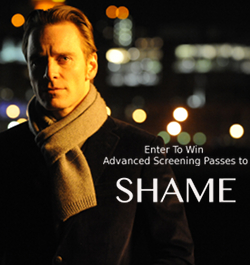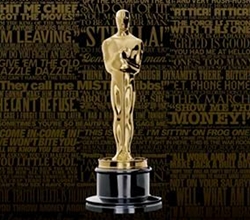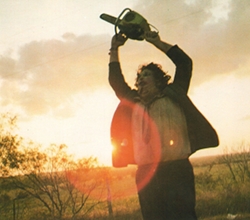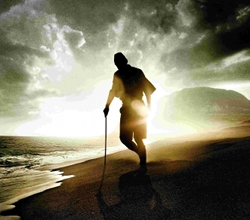Review: Bob Le Flambeur (1956)
Surely everyone knows the tale of Bob “Le Flambeur” for in Montmartre everyone knows Bob. From the seedy wet streets past midnight, his name is whispered in the alleys or the dripping back doorways to rooms of nefarious dealings, upscale cocktail parties on the brink giggle nostalgically to the break of dawn, his name toasted simultaneously with affection, admiration and pity; oh there is only one Bob of Montmartre. Directed by Jean-Pierre Melville and co-written by Auguste Le Breton (based on Melville’s concept), Bob Le Flambeur influenced films like Paul Thomas Anderson’s Hard Eight and Neil Jordan’s The Good Thief. It is among the very best Melville films and that’s certainly saying something.
Melville’s penchant for humorous visual cues, flair, human absurdity, and the kind of on-location shooting that helped foster in the French New Wave are immediately apparent in Bob Le Flambeur. Melville took his camera out into the world with his characters (not to mention underpaid cast and crew) but he also had the masterly precision and sweeping visual moves that filmmakers like Scorsese surely studied.
We first meet Bob (the controversial, smooth Roger Duchesne) in a dark reflection, a crescent of his face, a sliver of his arm peeking out the shadows throwing dice. A cigarette’s smoke rises to the pool of blackness that surrounds him. He’s in the back room of a nightclub, playing a game of craps. When he leaves, he walks through the remains of the night, exiting past a distant memory of a party filled with those accustomed to drinking and laughing through the wee hours, but even they are ghosts by dawn and it is Bob walking through an empty room to streets not quite bustling yet. Does he ever sleep? “Never before 6 am”, he tells a young girl. But give the world an hour or two to catch up with him.
Bob is described as an “old young man”. Silver hair, nicely suited with a youthful charm and handsomeness at age 50ish. He has a young man’s passion, though not for women, but for gambling. He still lives fast and lives hard, but he’s wiser than he used to be. He takes risks, but no longer the kind where he’s likely to end up in prison. At least he hasn’t for years. Bob once robbed a bank before the Great War, back when they didn’t even load bullets into their guns. No one got hurt unless you got caught. Bob got caught and he’s been grinding his way ever since.
He’s friends with a policeman whose life he once saved. The policeman understands while Bob is a hood, he isn’t one he has to worry much about. Bob’s interest in crime was never about the money, it was never a means to that end. It was about the means themselves, about the risks involved and he now satisfies his fix by gambling, often gambling foolishly (though Bob would likely argue all gambling is foolish and all of it is the stuff of life). When we first meet Bob he’s on a rough streak, “I’d even lose at hopscotch these days”, he says. But what’s this? After betting all he’s got, he wins big at the horses. Better let it ride. Despite pleas from a friend to take his winnings and go home, he loses almost all of it at baccarat. Bob can’t help himself. He only seems to win when he flips his faithful coin. Did I mention he keeps a slot machine in his home?
He is liberal with his money (money means almost nothing to him, which makes his gambling all the more dangerous), lending a helping hand to the occasional criminal on the lam or precocious young girl on the street. He does not abide pimps. He scares one away when he sees them make a move for Anne (a steamy Isabelle Corey), a girl as young for the night as Bob is old. She is more than willing to sleep with Bob for his chivalry. He gives her money for a hotel room instead.
Anne ends up hooking up with Paolo (Daniel Cauchy), Bob’s protégé, and this proves to be important, especially when the opportunity arises to rob the casino in Deauville. The safe is said to contain more than 800 million francs. Bob understands this figure well and when it appears the plan is in peril, that the police may have been tipped off he elects to go through with the plan anyway. Why? Melville approaches Bob as he would any other addict. In a fever, there is no logic behind any gambling. Every compulsive gambler wants to take that one shot where they risk it all. It isn’t enough to win, it’s how you win and what you’ve risked. The dream of it. The elation on the other side. The action.
Bob Le Flambeur is an oddity when looking at the American-influenced noirs of not just Melville or even French cinema, but all of cinema. Yes, it has the trappings of any heist film, but the suspense comes from the most surprising sources. There is more tension in the preparation of the heist than the heist itself. There is a surprising sequence in the last act that overshadows the heist completely. Here is a darkly amiable fable masking as noir, a film complete with a doomed character, a heist gone wrong, and – through unfortunate circumstance – a sultry femme fatale. And yet the movie, with it’s charismatic title character, it’s ironic ending encompassed by grace, quirkiness and blood, capped with a droll last piece of dialogue; curiously becomes a “likable” noir. Our hero, Bob of Montmartre, he loses. The charming thing about it is, it wouldn’t feel right any other way.














 Review: Outrage (2010)
Review: Outrage (2010) Subversive Saturdays: Unglassed Windows Cast a Terrible Reflection
Subversive Saturdays: Unglassed Windows Cast a Terrible Reflection Review: Hugo (2011)
Review: Hugo (2011) Review: The Muppets (2011)
Review: The Muppets (2011) Review: The Muppets (2011)
Review: The Muppets (2011)





